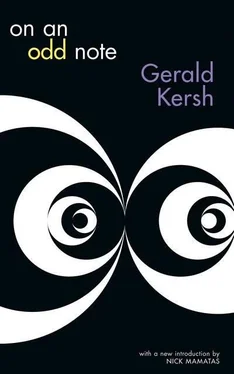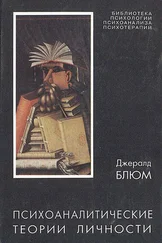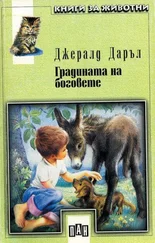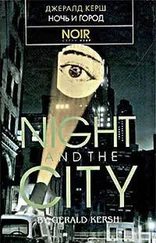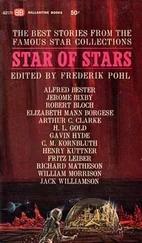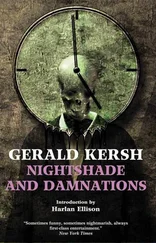Typically, the first thing Richard Aldous thought of was Henry James and “The Turn of the Screw.” How could this innocent child be saying words he could not possibly have heard in his tiny life? Now Mr. Aldous began to suspect the doctors, who are notoriously loose of language off the record among themselves. But presently, in a tense whisper, while the entire face of the child seemed to age and alter, Dicky said, “Dom, you take the big .45; Mac, take the cut-down, snub-nose, blue-barrel .38. What for? Because I’m telling you. A big gun looks five times bigger on a runt like Little Dominic. Get me? And a blue belly-gun looks twice as dangerous in the mitt of a big lug like Mac. Me, I take the Luger, because one look at a Luger, you know it’s made for business. . . . But empty, I want ’em empty. . . . C’mon, let’s have a look at that magazine, Dom. . . . Mac, break me them barrels. . . . Good! . . . You got an argument, Dom? Okay, so have I. I ain’t got no ambition to graduate to be Number One, and in Montana, brother, they hang you up. . . . Okay, okay, call it unscientific, but you’ll do as I say; because, believe me, this job’ll be pulled using those things just for show. My weapon is time. Cease, Dominic. . . . Gimme a feel of that .45. Empty. Good, let it stay like that. . . . Okay, then, I want this straight, I want this right from the start. We’ll go over this again. . . .”
Then Dicky Aldous stopped talking. His face reassumed its proper contours, and he slept peacefully.
Mr. Aldous met Miss Williams on the stairs. “It’s worrying me to death,” she said. “I cannot for the life of me imagine where Dicky-darling picked up the word ‘cease.’ ”
Mr. Aldous said, “I think, just for a few nights, Miss Williams, I’ll sleep in his room.”
And so Mr. Aldous did. To be accurate, he lay down on the nurse’s bed, and stayed awake, listening. He made careful notes of what poor Dicky said in his sleep—and many of the things the child said were concerned with visual memory, which the boy could not have had, since he was born blind.
“. . . They’s a whole knot o’ cottonmouths on the island past Miller’s Bend. What’ll you give me if I show you? What, you never seen a cottonmouth? Give me something and I’ll show you. It’s a snake, see, a great big poison snake, and it’s got a mouth like it’s full of cotton, and poison teeth longer’n your finger. C’mon, give me what you got and I’ll show you the cottonmouths,” Dicky said, his voice growing uglier. “. . . What d’you mean, you ain’t got nothing? You been wasting my time? Ever learn the Indian twist, so you can break a growed man’s elbow? All right, boy, I’ll show you for free. . . . Oh, that hurts, does it? Too bad. A bit more pressure and it’ll hurt you for keeps—like that . . . . You still ain’t got nothing to see the cottonmouths all tangled in a knot? . . . Oh, you’ll get it, will you? You’d better. And you owe me an extra dime for learning you the Indian twist. . . . No sir, just for wasting my time I ain’t going to show you them cottonmouths today—not till you bring me twenty cents, you punk, you. And then maybe I’ll show you that nest o’ diamond back rattlesnakes at Geranium Creek. But if you don’t deliver, Malachi Westbrook—mind me now—I’ll show you the Seminole jaw-grip. That takes a man’s head clear off. And I’ll show it to you good, Malachi. Yes sir, me and Teddy Pinchbeck will sure show you good! Mind me, now; meet me and Teddy Pinchbeck at the old Washington boathouse eight o’clock tomorrow morning, and bring Charley Greengrass with you. He better have twenty cents with him, too, or else. . . .”
Mr. Aldous wrote all this down. At about three o’clock in the morning Dicky said, “Okay, kids. You paid up. You’re okay. Okay, I’ll just borrow Three-Finger Mike’s little old boat, and Teddy Pinchbeck and me’ll take you and Charley Greengrass to look at them cottonmouths. Only see here, you kids, me and Teddy Pinchbeck got to pole you way past Burnt Swamp, and all the way to Miller’s Bend. That’ll cost ’em, won’t it, Teddy? . . . You ain’t got it? Get it. And stop crying—it makes me nervous, don’t it, Teddy? And when I’m nervous I’m liable to show you the Indian hip-grip, so you’ll never walk again as long as you live. You mind me now! . . .”
Dicky said no more that night. At about nine o’clock in the morning Mr. Aldous made an appointment with a psychologist, one Dr. Asher who, finding himself caught on the horns of this dilemma— carte blanche and an insoluble problem—double-talked himself into one of those psychiatric serials that are longer than human patience. But what was Dr. Asher to say? Little Dicky Aldous had no vision to remember with; there was nothing in his head upon which juvenile imagination might conceivably fall back.
It was by sheer accident that Mr. Aldous met a lieutenant of detectives named Neetsfoot to whom he confided the matter, hoping against hope, simply because Neetsfoot had worked on the Rurik Duncan case.
The detective said, “That’s very strange, Mr. Aldous. Let’s have it all over again.”
“I have it written down verbatim, Lieutenant.”
“I’d be grateful if you’d let me make a copy, Mr. Aldous. And look—I have children of my own. My boy has had polio, in fact, and I’ve kind of got the habit of talking to kids without upsetting them. Would you have any objection—this is unofficial—would you have any objection to my talking to your son a little bit?”
“What in the world for?” asked Mr. Aldous.
Lieutenant Neetsfoot said, “Mr. Aldous, if you haven’t got a clue to something, well, that’s that. In that case, if you see what I mean, it doesn’t even come within range of being understood. At a certain point you stop trying to understand it. Now sometimes something that makes absolutely no sense at all, flapping about in the dark, throws a switch. And there you’ve got a mystery.”
“I don’t get what you’re driving at, Lieutenant.”
“Neither do I, Mr. Aldous. But I’ll give you the leading points, if you like. A —I know all there is to know about Rurik Duncan; saw him electrocuted, in fact. And a miserable show he made of it. B —I don’t like to dig these matters up, but your son, five years old and born blind, had one of Rurik’s eyes grafted into his head by Dr. Holliday. And now, C —the child is going word for word and point by point into details of things that happened about sixteen years before he was born and two thousand miles away!”
“Oh no, surely not!” cried Mr. Aldous.
“Oh yes, surely so,” said the Lieutenant. “And geographically accurate, at that. What’s more remarkable, your son has got the names right of people that were never heard of and who died before he was born. What d’you make of that? Teddy Pinchbeck was shot in a fight outside a church it must be ten, eleven years ago. A bad boy, that one. And where did I get my information? From Malachi Westbrook—he’s a realtor, now. There was an old Washington boathouse, and Malachi Westbrook’s the man that tore it down to make space for Westbrook Landing. Charley Greengrass runs his late father’s store. There was a Three-Finger Mike, but he just disappeared. There really is a Cottonmouth Island just past a Miller’s Bend, and in the mating season it’s one writhing mass. And Rurik Duncan did break Malachi Westbrook’s arm, before your son was born. Well?”
“This I do not understand,” said Richard Aldous.
“Me neither. Mind if I sit with the boy a bit?”
“No, Lieutenant, no . . . but how on earth could he know about cottonmouths? He never saw one. He never saw anything, poor child. To be frank with you, neither my wife nor I have ever seen a cottonmouth snake. I simply don’t get it.”
Читать дальше
